Top 10 water deionizer system Manufacturers and Supplier Brands
- Top 10 Water Deionizer System Manufacturers and Supplier Brands
- Why this guide matters for buyers searching 'water deionizer system'
- How to choose a water deionizer system
- 1. Required water quality and measurement
- 2. Technology: Mixed-bed vs. EDI vs. Cartridge DI
- 3. Capacity and footprint
- 4. Total cost of ownership (TCO)
- 5. Service, spare parts and certifications
- Top 10 manufacturers and supplier brands for water deionizer systems
- Aqualitek Water Treatment Technologies Co., Ltd. (AQT)
- Evoqua Water Technologies
- Veolia Water Technologies & Solutions
- SUEZ Water Technologies & Solutions
- Pure Aqua, Inc.
- Culligan
- H2O Innovation
- Ion Exchange (India) Ltd.
- DuPont (formerly Dow Water & Process Solutions)
- Purolite
- Comparison table — Representative products and strengths
- How these suppliers differ: practical buying tips
- Operational considerations and lifecycle costs
- Regulatory and quality credentials to request
- Why work with an experienced supplier like Aqualitek (AQT)
- Conclusion
Top 10 Water Deionizer System Manufacturers and Supplier Brands
Choosing the right water deionizer system can make or break your process quality, product yield, and operating costs. Whether you need ultrapure water for laboratories, low-conductivity water for boilers, or large-scale demineralized water for industrial processes, this article helps you identify the leading manufacturers and suppliers of water deionizer systems and explains how to pick the right solution for your application.
Why this guide matters for buyers searching 'water deionizer system'
Searchers typing water deionizer system typically want to buy, compare, or understand DI technologies and suppliers. This article targets : it consolidates vendor information, compares technologies (mixed-bed DI, continuous deionization/EDI, cartridge DI), and offers practical buying criteria so you can shortlist suppliers quickly and confidently.
How to choose a water deionizer system
Selecting a water deionizer system involves technical and commercial factors. Use these decision points to evaluate suppliers and models.
1. Required water quality and measurement
Decide target resistivity or conductivity (e.g., 18.2 MΩ·cm ultrapure, 1–10 μS/cm for boiler feed). Suppliers should state final resistivity, typical TDS, and on-line monitoring options.
2. Technology: Mixed-bed vs. EDI vs. Cartridge DI
Mixed-bed ion exchange gives very high purity for intermittent flows but requires chemical regeneration. Electrodeionization (EDI) offers continuous high-purity water without chemical regenerants and is favored where downtime and chemical handling are concerns. Disposable cartridge DI units are simple and low-cost for small, low-volume uses.
3. Capacity and footprint
Match the flow rate (L/hr, m3/hr, GPD) to your demand and consider headroom for peak loads. Industrial DI systems can be modular to scale; lab bench-top units focus on small volumes and low footprint.
4. Total cost of ownership (TCO)
Compare capital cost, regeneration chemical costs (for regenerable systems), resin replacement, energy use (pumps, EDI power), and service contracts. Suppliers should provide sample TCO calculations.
5. Service, spare parts and certifications
Look for vendors with local service presence, certified resins and membranes, and documented quality control. For regulated industries, suppliers with ISO certification and traceable components are preferable.
Top 10 manufacturers and supplier brands for water deionizer systems
Below are ten reputable companies that manufacture or supply water deionizer systems or key deionization components. Each entry highlights what they offer related to water deionization.
Aqualitek Water Treatment Technologies Co., Ltd. (AQT)
Aqualitek (AQT), headquartered in Guangzhou, China, designs and manufactures customized water treatment solutions, including mixed-bed deionizers, EDI-integrated systems, bench-top DI units, and complete pretreatment-to-polish systems. AQT combines engineering expertise, component manufacturing, and global supply to provide complete DI plants for residential, commercial, and industrial applications. AQT emphasizes tailored layouts, energy-efficient designs, and after-sales support to fit customer needs worldwide.
Evoqua Water Technologies
Evoqua is a major global supplier of water treatment equipment and services, offering industrial deionization systems, mixed-bed and full-stream ion exchange solutions, and EDI modules. Evoqua supports large industrial applications (power, semiconductor, pharma) with engineered DI plants and service contracts for maintenance and resin regeneration.
Veolia Water Technologies & Solutions
Veolia supplies large-scale water treatment systems, including demineralization and deionization plants for municipal, industrial, and power sector applications. Their offerings include ion exchange systems, EDI integration, and turnkey solutions that combine pretreatment (filtration, RO) with final deionization stages.
SUEZ Water Technologies & Solutions
SUEZ (which integrated GE Water assets historically) provides ion exchange systems, resins, and EDI technologies. SUEZ offers engineered deionizer systems tailored for high-purity water requirements in industries like semiconductors, pharmaceuticals, and power generation.
Pure Aqua, Inc.
Pure Aqua (USA) manufactures a wide range of water treatment systems including bench-top DI units, mixed-bed deionizers, portable DI carts, and EDI systems. They are known for modular packaged solutions that are easy to deploy for commercial and light industrial uses.
Culligan
Culligan is a long-established water treatment brand offering industrial and commercial deionization solutions, including cartridge DI units and full-scale demineralization systems with service plans. Culligan's strength is local service networks, rental programs, and quick deployment of exchange cartridges for continuous operations.
H2O Innovation
H2O Innovation (Canada) supplies EDI and mixed-bed systems for industrial applications and specializes in modular and skid-mounted DI plants. They offer operation optimization, monitoring systems, and lifecycle service for their deionization solutions.
Ion Exchange (India) Ltd.
Ion Exchange India is a major manufacturer of water and wastewater treatment systems, including large demineralization and deionization plants for industry. They provide turnkey DI solutions, resin supply, and regeneration services across industrial sectors.
DuPont (formerly Dow Water & Process Solutions)
DuPont supplies ion exchange resins, electrodeionization modules, membranes, and related components used by system integrators and OEMs. While primarily a materials and component supplier, DuPont’s products are integral to many manufacturers’ DI systems and are widely available globally.
Purolite
Purolite is a global resin manufacturer specializing in ion exchange resins used in deionizer systems. Purolite resins are used in mixed-bed and single-bed DI systems. The company works with equipment manufacturers and system integrators to supply resins for both small and large DI plants.
Comparison table — Representative products and strengths
| Company | Representative Product / Type | Technology | Typical Capacity Range | Best for | Headquarters |
|---|---|---|---|---|---|
| Aqualitek (AQT) | Custom mixed-bed & EDI deionizer systems | Mixed-bed DI, EDI, RO+DI | Bench-top to large industrial (liters/hr to m3/hr) | Custom industrial, commercial & lab solutions | Guangzhou, China |
| Evoqua | Engineered DI plants | Mixed-bed, EDI | Small to large industrial | Power, pharma, manufacturing | USA |
| Veolia | Turnkey demineralization systems | Ion exchange, EDI | Industrial-scale | Municipal, industrial, power plants | France |
| SUEZ | Industrial ion exchange & EDI systems | Mixed-bed, EDI | Small to large industrial | Semiconductor, pharma, industrial | Global (France/International) |
| Pure Aqua | Packaged DI units & EDI skids | Cartridge DI, mixed-bed, EDI | Bench-top to small industrial | Commercial, labs, small plants | USA |
| Culligan | Rental cartridges & DI systems | Cartridge DI, mixed-bed | Bench-top to industrial | Businesses needing service networks | USA (global operations) |
| H2O Innovation | Modular DI / EDI skids | EDI, mixed-bed | Small to industrial | Modular industrial installations | Canada |
| Ion Exchange India | Turnkey demineralization plants | Mixed-bed ion exchange | Industrial-scale | Large industrial & utility projects | India |
| DuPont | ION exchange resins & EDI modules | Resins, EDI components | Component supply for all scales | OEMs and system integrators | USA (global) |
| Purolite | Ion exchange resins for DI systems | Resins (cation/anion/mixed) | Component supply | Resin replacement and OEM supply | UK / Global |
How these suppliers differ: practical buying tips
- For minimal maintenance and continuous ultra-high purity, prioritize EDI-capable suppliers (e.g., Evoqua, H2O Innovation, SUEZ).
- If you need quick swaps and low capital cost for small sites, cartridge DI or rental/cartridge exchange (Culligan, Pure Aqua) is practical.
- For large, turnkey plants with local installation and service, consider Veolia or Ion Exchange India.
- For best-in-class resins and components while working with a trusted system integrator, choose DuPont or Purolite materials.
Operational considerations and lifecycle costs
Don’t focus on purchase price alone. Key operational cost items include:
- Regeneration chemicals and handling (for regenerable mixed-bed systems).
- Resin replacement intervals and costs (resin quality affects run length).
- Energy usage—especially for EDI systems (electric power for EDI stacks) and pumps.
- Service contracts, spare parts availability, and local technical support.
Request real references and case studies from vendors that match your industry and capacity to validate long-term performance and TCO estimates.
Regulatory and quality credentials to request
When evaluating vendors, ask for:
- ISO 9001, ISO 14001 certifications where applicable.
- Material data sheets for resins and membranes, including IEC/ASTM standards.
- Performance data showing output resistivity/conductivity and typical run lengths.
- Installations and service records in your industry (pharma, semiconductor, food & beverage).
Why work with an experienced supplier like Aqualitek (AQT)
Aqualitek Water Treatment Technologies Co., Ltd. (AQT) combines engineering, component manufacturing, and global delivery to meet diverse water deionizer system needs. AQT specializes in customized DI plants—offering pretreatment, RO, mixed-bed deionizers, EDI modules, and integrated monitoring—with engineering to match local feed water and regulatory needs. For buyers seeking a single-source supplier with global reach and tailored service, AQT is positioned to deliver complete, cost-effective DI solutions.
Conclusion
Selecting a water deionizer system requires balancing purity, uptime, operating cost, and supplier reliability. The companies listed above represent different strengths: turnkey engineering (Veolia, Ion Exchange), continuous low-chemical solutions (Evoqua, H2O Innovation), local service and cartridge options (Culligan, Pure Aqua), and component/resin specialists (DuPont, Purolite). AQT offers a full suite of DI solutions tailored to your needs and is a recommended contact if you need customized, engineered systems with global support.
If you want a direct comparison tailored to your site (feed water analysis, target purity, flow rate, budget), contact Aqualitek (AQT) for a free consultation and proposal.
Frequently Asked Questions
Q: What is the difference between deionization (DI) and reverse osmosis (RO)?A: RO uses a semipermeable membrane to remove dissolved solids and most ions; DI removes ionic species via ion exchange resins or EDI for higher resistivity. RO is often used as pretreatment before DI to extend resin life.
Q: When should I choose EDI instead of mixed-bed resin DI?A: Choose EDI when you need continuous high-purity water without chemical regenerants and minimal downtime. Mixed-bed DI can reach very high purity but requires chemical regeneration and handling.
Q: How do I size a DI system?A: Size based on peak and average flow rates, required water quality (resistivity/conductivity), and required contact or run length. Ask vendors for sample load calculations and safety factors.
Q: How often do DI resins need replacement?A: Resin life depends on feed water quality and system design. With proper pretreatment and RO polishing, resins can last months to years. Track conductivity rise and scheduled regeneration to plan replacements.
Q: Can I retrofit an existing RO system with DI or EDI?A: Yes. Many suppliers design RO+DI or RO+EDI integrations. Proper pretreatment and sequence design are critical for performance.
Q: What documentation should I request from suppliers?A: Request performance data sheets, material certificates, resin/membrane specs, installation references, maintenance plans, and sample TCO calculations.
Signs Your Water Purification System Needs Repair

Customizing Multi-cartridge Filter Housings for Industrial Needs
Industrial RO vs Ultrafiltration Comparison 2026

Installation and Integration Guide for 12TPH UF Systems in Plants
Solutions
Can I use AQT’s water treatment systems for seawater desalination?
Yes! We provide seawater desalination systems using advanced reverse osmosis (RO) technology, specifically designed to convert seawater into fresh, drinkable water. These systems are ideal for coastal communities, marine applications, and industrial desalination projects.
How often should I replace filters and membranes?
Filter and membrane lifespan depends on water quality, usage, and system type. General guidelines:
1. Sediment & Carbon Filters: Replace every 6–12 months.
2. RO Membranes: Replace every 2–3 years, depending on water conditions.
3. UF/NF Membranes: Replace every 1–2 years.
Regular maintenance ensures optimal performance and water quality.
What industries does AQT serve?
We provide water treatment solutions for a wide range of industries, including:
1. Industrial Manufacturing – Process water treatment, cooling water, and boiler feed.
2. Hospitality & Commercial – Hotels, restaurants, and office buildings.
3. Residential Applications – Drinking water purification and softening.
4. Healthcare & Pharmaceuticals – Ultra-pure water for laboratories and hospitals.
5. Municipal & Public Utilities – Water supply and wastewater treatment.
6. Food & Beverage Processing – Filtration for beverage p
Water Filters
Do you provide replacement parts and consumables?
Yes. We supply cartridges, filter bags, media (sand, carbon, etc.), valve kits, and O-rings for all major systems.
Are your filters suitable for seawater or chemical-heavy applications?
Yes, we offer FRP and stainless steel housings resistant to corrosion and suitable for marine or aggressive chemical environments.

500 LPH Reverse Osmosis (RO) Water Purification Machine TWV - 412
Our 500 LPH Reverse Osmosis (RO) System is engineered to provide high-quality purified water for commercial applications. Designed with advanced RO technology, durable components, and a user-friendly interface, this system ensures consistent performance, low maintenance, and long-term reliability.
With its compact design and robust skid-mounted frame, it’s an excellent choice for businesses that demand efficiency and quality in water purification.

Tap Water Reverse Osmosis (TWRO) Systems TWV Series
TWV series Reverse Osmosis (RO) systems are pre-engineered and pre-assembled units with 2.5”/4” membrane housings(single element type)for tap water(lower TDS).They are designed for overall superior performance, high recovery rates and offer great savings with low maintenance and operation costs.

Tap Water Reverse Osmosis (TWRO) Systems TWF Series
TWF series Reverse Osmosis (RO) systems are pre-engineered and pre-assembled units with 4” membrane housings(multiple elements type) for tap water(lower TDS) .The medium large volumes can help meet your a variety of commercial and industrial applications. They are designed for overall superior performance, high recovery rates and offer great savings with low maintenance and operation costs.

Tap Water Reverse Osmosis (TWRO) Systems TWE Series
TWE series Reverse Osmosis (RO) systems are pre-engineered and pre-assembled units with 8” membrane housings for tap water (lower TDS). The large volumes can help meet your a variety of industrial applications. They are designed for overall superior performance, high recovery rates and offer great savings with low maintenance and operation costs.
Request More Information
Contact us today for product catalogs, customization options, and a free quotation designed for your business needs.
Rest assured that your privacy is important to us, and all information provided will be handled with the utmost confidentiality.
© 2026 AQUALITEK. All rights reserved.

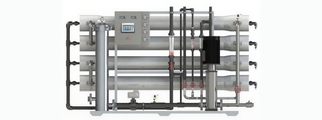
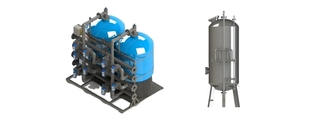
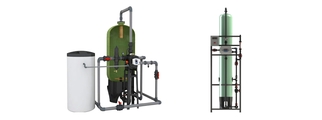
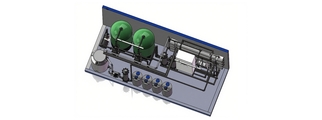
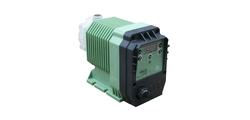
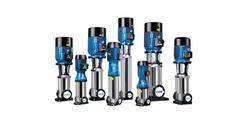
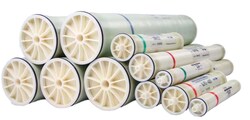
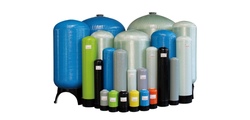
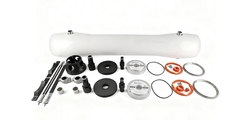
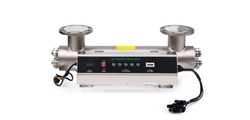
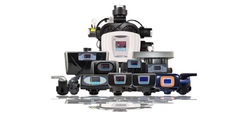
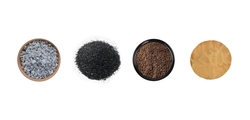
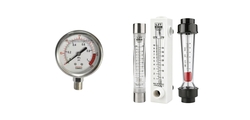
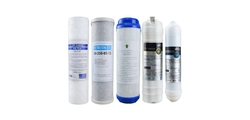
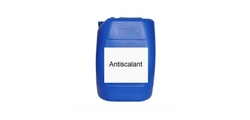
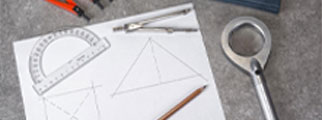



AQUALITEK- Aimee Hoo
AQUALITEK - Aimee Hoo